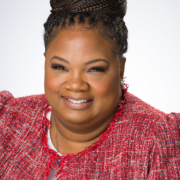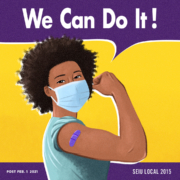Ten consumer advocacy organizations call for action on aviation consumer protection priorities in letter to DOT
August 27, 2021
Media contact: National Consumers League – Carol McKay, carolm@nclnet.org, (412) 945-3242
The Honorable Pete Buttigieg
Secretary
United States Department of Transportation
1200 New Jersey, SE
Washington, DC 20590
RE: Promoting DOT’s Aviation Consumer Protection Mission and Passenger Priorities
Dear Secretary Buttigieg:
The undersigned consumer advocacy organizations appreciated the opportunity to meet with you on July 27. We welcomed your close attention to our recommendations for actions the Department of Transportation (“DOT” or “Department”) should take to promote and enhance consumer protection in the air travel marketplace. We are encouraged that under your leadership, consumer protection will not be an afterthought at the DOT.[1]
In that regard, we write today regarding the key priorities we identified during our meeting and to request meetings with appropriate officials as you move forward on implementation.
First, as we discussed, we hope you will be publicly and personally highlighting consumer protection as a key part of DOT’s mission. DOT is the sole consumer protection agency, at any level of government, with authority over the air travel industry. Your public statements about your expectations for consumer protection in the air travel marketplace will put the airlines on notice that the DOT under your leadership will vigorously enforce existing consumer protections and seek new ways to better protect travelers as the industry emerges from the COVID-19 pandemic, and going forward.
Second, on the specific priorities we raised with you, all of which you were receptive to addressing, we ask that you help arrange for us to meet with the appropriate officials at DOT and FAA with authority to address these priorities. Those priorities include:
- Taking immediate action to address the airlines’ practice of issuing expiring travel vouchers for flights not taken on account of the pandemic. The four major U.S. airlines had $10 billion in unused travel credits on their books at the end of 2020. Many billions of dollars in credits will expire this year, due in no small part to inconsistent airline rules regarding when such credits must be used.[2] As was the case last year, travelers continue to be caught in an untenable situation: either endanger their health by flying despite the risks to themselves and others from the resurgent COVID-19 virus, or lose their substantial ticket investments. We request that you publicly call on the airlines to grant refunds, or at the consumer’s option, provide indefinite extensions and transferability of vouchers, for travel that was scheduled to have occurred since the pandemic began. We also urge you to investigate whether the airlines’ failure to do so would constitute an unfair or deceptive practice under DOT’s §41712 authority. We appreciate that DOT has recognized the importance of addressing the more than 100,000 complaints it received in 2020 related to ticket refunds stemming from the COVID-19 pandemic. However, the ongoing enforcement action against Air Canada[3] and the planned NPRM on airline ticket refunds[4] do not adequately address the magnitude of this unprecedented situation. To date, no domestic airline has been fined by DOT for any anti-consumer transgressions identified during the pandemic. Conversely, DOT has not hesitated to fine passengers when justified, with fines totaling more than $1 million in 2021 alone.[5]
- Fulfilling Congress’s directive that DOT address airlines’ family seating practices. Under the airlines’ current family seating practices, families traveling with small children must either forgo purchasing the most affordable classes of tickets or risk being seated far from their children during their flight. Recognizing this situation as indefensible, Congress directed the DOT to review and “if appropriate, establish a policy” directing air carriers to ensure that young children can be seated with their families at no additional cost.[6] But to date, DOT has limited its response to publishing a web page to educate the public about family seating and the availability of the DOT’s complaint process.[7] Separating young children from their families during flights not only creates needless anxiety; it also poses a safety risk during in-flight emergencies, and even puts children at increased risk of sexual assault.[8] We urge DOT to act on Congress’s directive and initiate a rulemaking to mandate that families with small children be seated together at no additional cost. In our view, the airlines’ family seating practices also constitute an unfair or deceptive practice under DOT’s §41712 authority,
- Acting on Congress’s mandate that FAA establish minimum seat size standards. There currently exists no federally-mandated minimum seat size standard for U.S. airlines. Combined with badly out-of-date Federal Aviation Administration (“FAA”) emergency evacuation testing standards, the lack of a minimum seat size standard puts passengers at significant risk. Congress,[9] consumer groups,[10] an FAA advisory committee,[11] and the DOT’s Inspector General[12] have all called attention to this risk. The FAA’s continued resistance to establishing a minimum seat size standard led Congress to direct the FAA to do so no later than October 2019. It is now nearly two years since that deadline passed. The DOT should implement this Congressionally-mandated action without further delay.
As leisure travelers continue to power the airline industry’s taxpayer-supported recovery from the COVID-19 pandemic, the time for action by the DOT to address anti-consumer industry practices is now. The DOT cannot stand by while travelers endure unprecedented delays and cancellations, struggle to obtain refunds, are prevented from sitting with our children, and are squeezed into ever-shrinking and increasingly unsafe seats. The importance of prioritizing accountability for consumer protection has been highlighted anew in recent months, as the domestic airline industry has experienced a series of operational meltdowns, leading to thousands of delayed, canceled, and rescheduled flights, disrupting the travel plans of millions of American consumers.
Thank you again for the commitment you have given us to ensuring protection and fair treatment for the flying public.
Sincerely,
Business Travel Coalition
Consumer Action
Consumer Federation of America
Consumer Reports
EdOnTravel.com
FlyersRights.org
National Consumers League
Travelers United
Travel Fairness Now
U.S. PIRG
cc:
The Honorable Maria Cantwell, Chair, Senate Committee on Commerce, Science, & TransportationThe Honorable Roger Wicker, Ranking Member, Senate Committee on Commerce, Science, & Transportation
The Honorable Kyrsten Sinema, Chairman, Senate Subcommittee on Aviation Safety, Operations, and Innovation
The Honorable Ted Cruz, Ranking Members, Senate Subcommittee on Aviation Safety, Operations, and Innovation
The Honorable Peter DeFazio, Chairman, House Committee on Transportation & Infrastructure
The Honorable Sam Graves, Ranking Member, House Committee on Transportation & Infrastructure
The Honorable Rick Larsen, Chairman, House Subcommittee on Aviation
The Honorable Garret Graves, Ranking Member, House Subcommittee on Aviation
Blane Workie, Assistant General Counsel for the Office of Aviation Consumer Protection, DOT
John Putnam, Acting General Counsel and Deputy General Counsel, DOT
[1] Josephs, Leslie. (2021, July 28) Legroom, vouchers, seating fees: Consumer advocacy groups take complaints to DOT. CNBC.com. https://www.cnbc.com/2021/07/28/legroom-vouchers-seating-fees-consumer-travel-groups-take-complaints-to-dot-.html
[2] McCartney, Scott. (2021, March 17) The Airline and Hotel Pandemic Vouchers That May Prove Worthless. Wall Street Journal. https://www.wsj.com/articles/the-airline-and-hotel-pandemic-vouchers-that-may-prove-worthless-11615986078?mod=article_inline
[3] U.S. Department of Transportation. (2021, June 15) U.S. Department of Transportation’s Office of Aviation Consumer Protection Initiates Enforcement Proceeding Seeking Approximately $25 million Against Air Canada for Extreme Delays in Providing Required Refunds [Press release]. https://www.transportation.gov/briefing-room/us-department-transportations-office-aviation-consumer-protection-initiates
[4] https://www.reginfo.gov/public/do/eAgendaViewRule?pubId=202104&RIN=2105-AF04
[5] Federal Aviation Administration. (2021, August 19) FAA Fines Against Unruly Passengers Reach $1M [Press release]. https://www.faa.gov/news/press_releases/news_story.cfm?newsId=26440
[6] FAA Extension, Safety, and Security Act of 2016. §2309. https://www.congress.gov/114/plaws/publ190/PLAW-114publ190.pdf
[7] U.S. Department of Transportation. (2020, March 4) Family Seating. https://www.transportation.gov/individuals/aviation-consumer-protection/family-seating
[8] Rosato, Donna. (2020, March 4) Airlines Fall Short in Fixing Family Seating Problems. Consumer Reports. https://www.consumerreports.org/air-travel/airline-fixes-to-family-seating-problems-fall-short/
[9] Silk, Robert. (2020 August 17) Travel Weekly. https://www.travelweekly.com/Travel-News/Airline-News/Congress-FAA-to-set-standards-for-seat-size-delay
[10] FlyersRights.org. (2021 August 17) The Case of the Incredible Shrinking Airline Seat. https://flyersrights.org/f/the-case-of-the-incredible-shrinking-airline-seat
[11] Federal Aviation Administration. “Emergency Evacuation Standards Aviation Rulemaking Committee. https://www.faa.gov/regulations_policies/rulemaking/committees/documents/index.cfm/committee/browse/committeeID/757
[12] U.S. Department of Transportation Office of Inspector General. (2020 September 16) FAA’s Process for Updating Its Aircraft Evacuation Standards Lacks Data Collection and Analysis on Current Evacuation Risks. https://www.oig.dot.gov/sites/default/files/FAA%20Oversight%20of%20Aircraft%20Evacuations%20Final%20Report%20-%2009-16-20.pdf
About the National Consumers League



 By Spencer Cramer, NCL Health Policy Intern
By Spencer Cramer, NCL Health Policy Intern
 By Guest Blogger April Verrett, President of SEIU 2015
By Guest Blogger April Verrett, President of SEIU 2015












